The Myers Briggs Type Indicator has been invaluable to me ever since I started exploring it. I’ve come to better understand myself, to better understand the people I know, and to fully understand before that different people think and feel in different ways. Just because my approach to life is different than other people’s doesn’t mean I’m strange or out of touch with human nature; everyone is different. MBTI has also been a fantastic tool for analyzing fictional characters, especially the characters in opera. While I’ve only written full analyses of La Bohéme and Die Zauberflöte so far, my mind has been examining the personality types of many characters from many different operas. Now I want to examine the personality types of some of the most richly characterized figures in opera: the cast of Don Giovanni.
The typing system I use is derived from ALittleBitOfPersonality.com. Technically this isn’t a Myers Briggs site, as its introductory video makes clear. It draws on the original work of Briggs, Myers and Jung, but strives to use their ideas in a way that’s easy for the layperson to grasp and to stay true to their original definitions of each cognitive step and function, avoiding the common oversimplifications and stereotypes. For that reason, I tend to favor it slightly over more traditional Myers Briggs sites and guidebooks, especially when typing fictional characters. I always supplement it with insights from conventional Myers Briggs sources, though.
For anyone who hasn’t read my earlier posts on this theme, here are the definitions of each of the eight cognitive steps, of which each personality type contains four:
Extraversion (E) vs. Introversion (I): Looking outside yourself first, prioritizing the external world and cues from other people, vs. looking inside yourself first, prioritizing your inner thoughts, emotions and pre-existing knowledge. This is different from social extraversion vs. social introversion: it’s about your way of thinking.
INtuition (N) vs. Sensing (S): Focusing on concepts, and using those concepts to understand literal facts, vs. focusing on literal facts, and using those facts to understand concepts.
Thinking (T) vs. Feeling (F): Focusing first on logical use vs. focusing first on emotional meaning. This has nothing to do with your intelligence or how emotional you are. It’s about your way of evaluating and making decisions.
Judging (J) vs. Perception (P): Planning and acting first, taking actions based on principles and then observing the results, vs. exploring and observing specific circumstances first, then responding to them.
Besides these main cognitive steps, each personality type consists of four out of eight cognitive functions. Below are the definitions of each function, drawing both on ALBoP and on two excellent traditional Myers Briggs resources, PersonalityHacker.com and PersonalityGrowth.com.
Extraverted Intuition (Ne): Observing patterns and imagining possibilities outside of yourself – associated with exploration, imagination, and a strong sense of “what could be.” (Don Giovanni’s dominant function.)
Introverted Intuition (Ni): Envisioning patterns and possibilities based on inner knowledge – associated with “big picture” visions, perspectives and a strong sense of “what will be” or “what should be.” (No one’s dominant function in this opera.)
Extraverted Sensing (Se): Observing literal external facts and experiences – associated with the five physical senses, keen observation skills and focus on the present moment. (Leporello, Zerlina and Masetto’s dominant function.)
Introverted Sensing (Si): Using inner knowledge of literal facts and past experiences to understand the present – associated with memory, knowledge of rules and focus on tradition and duty. (Don Ottavio’s dominant function.)
Extraverted Feeling (Fe): Taking emotionally meaningful action based on external cues – associated with harmony, social skills, focus on the group and understanding other people’s emotions. (Donna Anna’s dominant function.)
Introverted Feeling (Fi): Gathering data and finding personal emotional meaning in it – associated with authenticity, reflection, strong core values and understanding your own emotions. (Donna Elvira’s dominant function… although she spends a lot of time clumsily wielding her inferior function, Te, instead.)
Extraverted Thinking (Te): Taking logically useful action based on external cues – associated with efficiency, drive, decisiveness and seeking to control your external environment. (The Commendatore’s dominant function.)
Introverted Thinking (Ti): Gathering data and finding logic and usefulness in it – associated with analysis, accuracy, perfectionism and thirst for knowledge. (No one’s dominant function in this opera, although it’s well developed in both Giovanni and Leporello.)
Without further ado, here are my complete MBTI analyses of the Don Giovanni cast.
Don Giovanni: ENTP (“The Visionary”/“The Debater”/“The Inventor”/“The Swashbuckler”)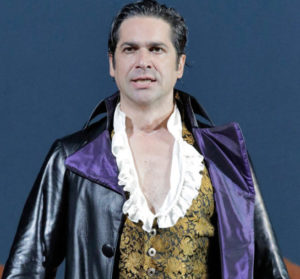
Extraversion: The Don’s social extraversion goes without saying. But more important than his love of sex and parties is the fact that he’s always looking outside himself. Looking for new potential conquests, for new ways to achieve them, and for ways to get out of the trouble in which he constantly finds himself. Unlike the other characters, he has no unique musical style of his own, but always mirrors the others’ styles and key signatures. When interacting with other aristocrats he adopts their music’s noble sound, with the peasants he adopts their more folk-like style, with Leporello his patter, etc. Mozart seems to depict him as a man with no inner world at all. He can only observe and reflect other people as he takes advantage of them.
Intuition: For Giovanni, the world is full of potential. Everything is a potential source of self-indulgent fun, while every person is either a potential conquest, a potential tool to help him seduce, or a potential obstacle to thwart. As well as a natural seducer, he’s a natural schemer, even though his schemes don’t always work. Compare his interactions with Leporello to those of another womanizing nobleman, Count Almaviva, with his own servant, Figaro. In the latter case, the Count is a Sensor while Figaro is an Intuitive, but here, the master is an Intuitive and his servant is the Sensor. Whenever the Count and Figaro get embroiled a zany scheme, either together or against each other, Figaro is the one with all the elaborate ideas. In Giovanni and Leporello’s misadventures, that’s Giovanni’s role. The Don is the one who thinks in broad concepts instead of in facts alone.
Thinking: Sharp schemer though he is, I was tempted to label Giovanni a Feeler at first, because his life revolves around sex and fun, not around anything of practical use. But you don’t need a pragmatic life to be a Thinker. Giovanni enjoys sex, therefore it’s useful to him, and his life consists of taking useful, logical actions to get it. Unlike Count Almaviva, he never wastes time frothing in anger when a seduction fails, only showing brief irritation before he moves on to the next one. Nor does he harbor any real tender feelings for his conquests. No one and nothing that isn’t useful has any meaning for him.
Perceiving: Most of the Don’s qualities I listed under “Extraversion” not only mark him as an Extravert, but also point to a Perceiving preference. He spends his days constantly observing his surroundings, situations and people, looking for conquests and pleasures, and then determining how to achieve them. His different seduction techniques for different women, both as we see in action and as described by Leporello in the Catalogue Aria, show that he’s both a keen observer and a keen adaptor. So does his constant shifting between different musical keys and styles, “speaking the language” of whomever he’s interacting with in each moment. Whether seducing, manipulating, or evading his enemies, his ability to observe and respond is the key to his success.
The ENTP is one of the most colorful personality types and one of the most popular in fiction. Their two main cognitive functions are Extraverted Intuition (Ne), observing patterns and possibilities outside themselves, and Introverted Thinking (Ti), analyzing how to put those patterns and possibilities to good use. This type is shared by countless witty rogues and mavericks in literature and pop culture: Shakespeare’s Mercutio and Benedick, Bugs Bunny, Star Wars’ Han Solo, Pirates of the Caribbean’s Jack Sparrow, Game of Thrones’ Tyrion Lannister, Batman’s the Joker, and the Muppets’ daredevil Gonzo, just to name a few. Nor was it a personality foreign to the 18th century stage. After all, it was a classic ENTP character’s cunning and rebellious spirit in a trilogy of French plays, all later made into operas, that some historians say helped to inspire the French Revolution. That character, of course, is Figaro. Even though on the surface, as a charming yet selfish womanizing aristocrat who eventually gets his comeuppance, Giovanni might seem like a retread of Count Almaviva, his basic personality is more like Figaro’s than like the ESFJ Count’s. Maybe this is why audiences and scholars so easily accept the Count as a symbol of ancien régime excess and oppression, but so often embrace the Don, despite his even more deplorable deeds, as a rebellious hero of the Enlightenment whose grisly fate should be mourned.
Leporello: ESTP (“The Entrepreneur”/“The Doer”/“The Promoter”/“The Spartan”)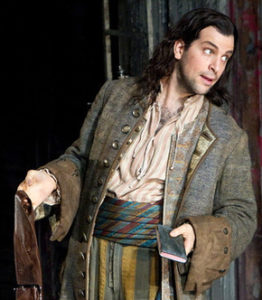 Extraversion: Like his master, Leporello chiefly looks outside himself: namely at his master. His whole life consists of obeying Giovanni, making snide remarks about Giovanni, cataloguing Giovanni’s conquests, trying to leave Giovanni only to be lured back, trying to reign Giovanni in, and yet relishing every pleasure Giovanni lets him share. He’s slightly more prone to internal reflection than his master, but for the most part, his gaze is fixed firmly outward.
Extraversion: Like his master, Leporello chiefly looks outside himself: namely at his master. His whole life consists of obeying Giovanni, making snide remarks about Giovanni, cataloguing Giovanni’s conquests, trying to leave Giovanni only to be lured back, trying to reign Giovanni in, and yet relishing every pleasure Giovanni lets him share. He’s slightly more prone to internal reflection than his master, but for the most part, his gaze is fixed firmly outward.
Sensing: Besides social status, this is the main difference between Leporello and the Don. Our very introduction to Leporello sees him complaining about the physical discomforts he has to endure and the sensual pleasures of the Don’s life that he envies. While the Don looks to the future, chasing after potential conquests and adventures, Leporello lives in the present, writing down the details of each conquest as they take place. While the Don makes smooth, calculated moves to get what he wants, Leporello is brasher and (as hinted above) more physical, pinching the girls at Zerlina’s wedding party and stealing food from his master’s table without sufficient stealth. While he obviously enjoys all the same things the Don does, he’s much less willing to pursue those pleasures in the face of pragmatic obstacles or danger. Abstract concepts and possibilities hold little appeal for him.
Thinking: Again, like his master, Leporello makes every decision based on its usefulness. His concerns are his own safety, his own comfort, keeping his master happy, and enjoying whatever scraps of “the good life” he can scavenge in his master’s wake. Occasionally he has moments where he considers moral meaning and values, but these are always quickly swept aside in favor of what’s personally useful to him… or to Giovanni, because his job is useful.
Perception: Again, just like his master, Leporello is always observing and responding. Observing Giovanni is his main pastime and responding to Giovanni’s orders is how he lives. He never makes plans of his own, nor does he live decisively by any principles. Any time he resolves to do something (e.g. to leave Giovanni) or to feel a certain way (e.g. to dislike Giovanni’s plan to switch clothes with him and trick Donna Elvira), his resolve is all too easily swayed by the specifics of each moment: e.g. by being offered four doubloons, or by the pleasure of having Elvira fawn over him. The Don is lucky to have a Perceiver servant whose approach to life is just as fluid as his own.
Since the Muppet who shares Don Giovanni’s personality type is Gonzo, it’s not too surprising that Leporello shares his type with Gonzo’s frequent sidekick Rizzo the Rat. ENTP and ESTP characters are often paired together in fiction and even Calise Sellers, A Little Bit of Personality’s ENTP webmistress, has discussed the chemistry between those two types. They’re very similar personalities: both are generally smart, witty, outgoing, independent, spontaneous, unsentimental, and tend to have healthy egos. Yet there are key differences too, which can either create a good balance between them, cause conflict, or both. While the ENTP is driven by Extraverted Intuition (Ne), observing patterns and possibilities, the ESTP is driven by Extraverted Sensing (Se), observing immediate facts and sensations. When two characters of these types are paired together, the ENTP is usually the “leader,” who sees potential everywhere and hatches all the zany schemes, while the more down-to-earth, in-the-moment ESTP tries to provide grounding and ensure that those ideas work in practice. Mozart and Da Ponte had already used this same pairing romantically with ENTP Figaro and ESTP Susanna. It’s interesting to see them tread similar ground in a very different way with the Don and Leporello.
Donna Anna: ESFJ (“The Provider”/”The Consul”/”The Caregiver”/”The Calvary”)
Note: This analysis of Donna Anna presumes her innocence in her bedroom encounter with Giovanni and takes her claims at face value. See the Donna Anna chapter of Kristi Brown-Montesano’s Understanding the Women of Mozart’s Operas for a strong argument in favor of her innocence from a textual, musical and historical standpoint.
Extraversion: Throughout the opera, Anna’s gaze is directed outward at three men: her dead father, Don Giovanni and Don Ottavio. Her chief focus is always on one or the other of them. While she has grief and rage to spare, she never turns inward to reflect on her feelings the way Ottavio or Donna Elvira do, but simply feels them and shows them, as people driven by Extraverted Feeling (Fe) do. She’s a good observer too, as she recognizes Giovanni’s voice as her attacker’s despite having no face to link it to and as she sees through Giovanni’s lie that Elvira is mad more easily than Ottavio does. Last but not least, she shows distinct concern for how others view her. She describes her near-rape in terms of the honor she nearly lost, not just her personal trauma, and she refuses to cut short her mourning to marry Ottavio not just because of her personal grief, but because the world would disapprove (“Ma il mondo… o Dio!”). No Introvert she.
Sensing: When Anna finds her father’s body, she doesn’t ask “How will I live without his love and protection?” as an Intuitive might have done. Instead she fixates on the corpse and its physical “deadness”: the blood, the wound, the pale face, etc. In “Or sai chi l’onore” she calls on Ottavio to remember the sight of that bloody corpse, not on the personal qualities she loved about her father, or even on the cruelty and injustice of his death. Nor does her account of her near-rape chiefly emphasize the terror she felt, but the physical details of Giovanni’s grasp and of her own twisting and turning to escape. Her focus is almost entirely on the physical and on either the past or the present. Her grief and rage are all-consuming and to make future plans before she’s had her revenge or finished mourning is unthinkable to her. She can’t even bring herself to speak of hope for better days except the vague “Perhaps someday heaven will take pity on me”: coloratura has to suffice where words fail her. An Intuitive Anna whose main focus was on ideas and possibilities would be a different character.
Feeling: I’ve never understood the popular view of Anna as a “cold” character. It seems to come from critics who define her by her unresponsiveness to Don Ottavio’s romantic consolation attempts, not by any other aspect of her. She spends the whole opera screaming, fainting, crying, panicking, or baying for revenge! But more importantly, of course, her focus is on meaning, not use. A Thinker could be just as eager to bring Giovanni to justice, but she would focus on logical methods to do so; Anna’s vengeful rage itself is paramount and she doesn’t seem to care about the method. A Thinker would have used logic to convince Ottavio to delay their wedding, highlighting the public disapproval she would face if she stopped mourning too soon; Anna briefly mentions that issue, but her main arguments are “Calm your torment or I’ll die of grief,” “Give my heart time to heal,” etc. She always speaks from and to the heart.
Judging: Anna is decisive from beginning to end. Even when terrified of confronting Giovanni, she never sways from her resolve to make him pay for his crimes. Nor, despite Ottavio’s efforts, does she ever sway from mourning her father’s death, or from postponing all other aspects of her life in favor of mourning and revenge. This is a matter of principle, never altered by specific circumstances.
As I’ve analyzed different opera characters, I’ve been surprised by the number of ESFJs, both sympathetic and less so, that I’ve found: Musetta, Marcello, the Queen of the Night, Count Almaviva, and now Donna Anna. I suppose with their unique blend of openness, poise, warmth, pride, charisma, strength, tenderness and passion, the ESFJ is an especially operatic personality. I probably should have known this just by remembering one of pop culture’s favorite ESFJs, Miss Piggy (yes, another Muppet)… or just by growing up with my own ESFJ father. Anna might not be as flamboyant as some of those others (neither is my dad), but she certainly shares their effusive feeling, their iron will, their sense of dignity, and their eagerness to champion both themselves and the people they care about. Yes, she’s “operatic,” but in the best way.
Don Ottavio: ISFJ (“The Defender”/”The Nurturer”/“The Protector”/“The Knight”)
Introversion: Unlike his lover and unlike Don Giovanni, Ottavio lives his life from the inside out. He shows no real eagerness to avenge the Commendatore’s death, but his most important internal value, his love for Anna, demands that he do it. Yet he can’t bring himself to confront Giovanni right away, because Anna’s accusation contradicts his internal belief that all noblemen live by the same noble values that he does himself. He refuses to believe the worst of Giovanni until enough evidence lets him determine the truth in his own mind. Unlike Anna, he doesn’t just act on his feelings, but privately reflects on those feelings in “Dalla sua pace” and in his recitatives. His inner world of romantic love and aristocratic values is the world he chiefly lives in.
Sensing: Ottavio lives in the moment, arguably to a fault. Just minutes after the Commendatore’s murder, he urges Anna to “leave the bitter memory” because she has “husband and father in me.” Throughout the opera he urges her to stop mourning, accept what’s happened and move on. Nor does he believe that Giovanni is the Commendatore’s killer until he sees clear factual proof, and when he has that proof, he makes no maverick attempt at revenge, but relies on the established legal system by sending for the ministers of justice. His command of the present moment also shines in how effectively he takes charge of chaotic situations: when the Commendatore’s body is found, for example, and when Leporello escapes the group’s clutches in Act II. As with his beloved Anna, a concept- and possibility-driven Intuitive Ottavio would be a distinctly different character.
Feeling: Ottavio declares that his love for Anna is all he lives for. His emotions are tied to her emotions, his peace of mind depends on hers, and restoring that peace of mind to her is his mission throughout the opera. Feelings (“love,” “affection,” the desire to “dry [Anna’s] tears” and to end his own “languishing” for marriage) and values (“duty as husband and friend”) are what drive his every action.
Judging: Like Anna, Ottavio is decisive and principle-driven. As mentioned above, he brings order to chaotic situations, lives by an unwavering sense of duty and won’t easily believe anything that contradicts his prior worldview. Unlike his enemy Giovanni, he never improvises, but operates by careful plans and existing systems. In him we see both the strengths and the potential pitfalls of Judging.
Whether fair or not, it isn’t surprising that people often label Ottavio a “wimp” and “unmanly”; statistically, ISFJ is the most common personality type for women. Female ISFJs are thought of as quintessentially kind, nurturing, dutiful wives and mothers, while male ISFJs are the quintessential good soldiers, chivalrous gentlemen and warm, caring friends. Regardless of gender, they’re known for their gentle, selfless dedication to others and for serving as quiet forces of stability: the “eye of the hurricane,” so to speak. We certainly see all those traits in Ottavio. He serves as the perfect foil to ENTP Giovanni, whose personality type is the inversion of his own. On a sillier note, it also feels fitting that he’s paired romantically with ESFJ Donna Anna: she shares Miss Piggy’s type and he shares Kermit the Frog’s. An imaginary Muppet production of Don Giovanni practically casts itself!
Donna Elvira: INFP (“The Idealist”/”The Mediator”/”The Healer”/“The Ranger”)
Introversion: Elvira might not be shy or soft-spoken, but she does live more in her mind than most of the other leads do. With no external encouragement and defying all odds, she resolves to track down Giovanni and make him pay for betraying her. Nor is her forgiveness only a response to his seductive efforts. Even beforehand, she’s shown privately struggling against her tender feelings. Later, even as all her allies are wholeheartedly seeking revenge on him, she keeps struggling in her mind and reflecting on her emotions, and finally makes the independent choice to still forgive and try to redeem him. Nor does she seem to care much about what others think of her. As much as commentators highlight the social disgrace her seduction and abandonment would have brought her, she herself never dwells on that disgrace, only on her personal feelings of pain and betrayal. On the contrary, she freely tells everyone that she was seduced and abandoned as she openly treks across Spain on an unladylike revenge mission, regardless of how it reflects on her. None of the Don’s other victims are as inwardly focused or as self-motivated as she is.
Intuition: When we first meet Elvira, she’s fantasizing about tearing Giovanni’s heart out. Fantasies and possibilities constantly drive her, whether they’re realistic or not. The revenge she hopes for, the possibility that the Don might still love her and repent, fear of what will happen if he doesn’t repent, etc. She also expresses more religious faith than any other character, accusing Giovanni of betraying heaven’s sacred laws by abandoning their marriage, firmly believing that God has willed her to find him and punish his sins, and never doubting that hell is waiting for him unless he repents. Looking beyond literal facts and thinking in concepts comes naturally to her.
Feeling: It goes without saying that Elvira is driven by emotion, not by logic or practicality. Her entire life, at least within the opera’s timeframe, is defined by her passion for the Don and the fact that he broke her heart. As for whether she cares more about use or meaning, she clearly favors the latter too. The Don allegedly won her love not with useful actions, but with “fair words, vows and flattery.” Likewise, he overcomes her anger not with deeds, but with a feigned outpouring of feeling. Nor, as I mentioned above, does she seem to care about avenging her honor and reputation, only her “tradito amor.” Love and its betrayal mean everything to her.
Perceiving: Elvira reacts spontaneously to each new situation. In her introduction, she holds out hope that she might win Giovanni back, but once she learns the full extent of his treachery, revenge is all she seeks… until he applies his seductive charm again and she capitulates. Nor does she make a decisive plan for revenge, but simply follows the Don everywhere and thwarts every new exploit she sees him attempt. Near the end she seems to have decisively chosen to forgive Giovanni and to try to save him from doom… but when he mocks her pleading, she storms away, telling him to rot in his pit of sin. Her every choice depends on the specifics of the moment.
This typing might surprise some people, since Elvira certainly isn’t a stereotypically shy, gentle female INFP. Instead she’s a rare female example of the kind of INFP often cast as the young male heroes of popular love stories: e.g. Alfredo in La Traviata, Marius in Les Misérables, Christian in Moulin Rouge!, and the teenage granddaddy of ‘em all, Shakespeare’s Romeo. The kind of INFP whose deep sensitivity does make them warm, tender, idealistic and romantic, but also makes them fiery, impulsive, often jealous, and at least a little melodramatic. The kind who can kill a man in a sword duel, fight heroically in a revolution, or viciously humiliate a love interest who jilted them just as easily as they can sweetly pine for love and write romantic poetry. Who loves with all their soul and who puts both their lover and Love itself on the highest pedestal, but if betrayed, will lambast the former lover in jealous rage, acting more like an unhealthy ENTJ or ESTJ than like their usual selves… only to fall tenderly and blissfully back into that lover’s arms the moment they feel loved again. As an ISFP myself, not so different from an INFP, I can attest that these traits are just as IxFP-like as the stereotypical sweet shyness, and Elvira embodies them.
Zerlina: ESTP (“The Entrepreneur”/“The Doer”/“The Promoter”/“The Spartan”)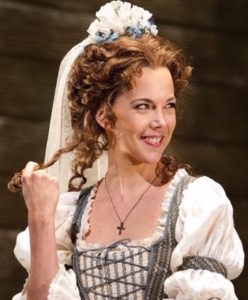
Extraversion: Zerlina is yet another Extravert both in the social sense (perky, outgoing, loves parties) and in that she looks chiefly outside herself. Her focus is always on Masetto, on Giovanni, or else on external situations like her wedding, Giovanni’s party, or the aristocrats’ revenge mission that she ultimately joins. Her only real internal reflection is in “La ci darem la mano,” and even there, in the end she doesn’t internally decide to go with the Don, but simply succumbs to the external cue of his advances, echoing his repeated “Andiam.” An Introverted Zerlina would do more internal reflection throughout the opera, as Don Ottavio and Donna Elvira do, and her decisions would be more exclusively her own.
Sensing: Like her fellow Sensor characters described above, Zerlina lives entirely in the moment. Only briefly does she consider future possibilities before the allure of the present sweeps her away. Even then, she never contemplates ideas or abstract concepts (e.g. whether or not she’ll really be happy without Masetto, or the moral implications of leaving him for Giovanni), but only literal concerns (e.g. that Masetto will be hurt and that Giovanni might deceive her). Even after her near-rape, she quickly moves past the trauma in favor of present-focused activities, namely revenge on Giovanni and reaffirming her romance with Masetto. She also tends to speak of love not in abstractions, but in terms of physical pleasures: kissing, dancing, and other things she only alludes to. That’s a Sensor for you.
Thinking: Even Zerlina’s most feeling-infused moments are driven by an underlying pragmatism. When she succumbs to the Don’s charms, it’s clearly not just his charms that draw her, but his offer to lift her out of poverty and make her a lady. When told of his deceitful ways, she leaves him easily and without regret. But even while resisting his advances, she still attends his party and avoids standing up to him, in part because she wants to keep reaping the benefits of his favor, but chiefly because she knows it would be dangerous to cross him. Even after her near-rape, while she clearly wants revenge, she only seeks it under the aristocrats’ protection and thinks Masetto’s independent hunt for the Don is foolish. Nor is she prone to the outpourings of pure emotion that the noble ladies are. Even her most tender moment, “Vedrai carino,” is still playful and based in the useful action of tending Masetto’s injuries. She always prioritizes use.
Perceiving: Zerlina’s portion of “La ci darem la mano” mostly consists of weighing her options, deciding whether the advantages of giving in to the Don will outweigh the disadvantages before she chooses a course of action. This is classic Perceiving. Throughout the opera, her choices respond to cues she observes, not to plans or principles. Masetto implies he wants to beat her for cheating, so she wins him over with reverse psychology by saying “Beat me.” The benefits of attending the party and dancing with Giovanni seem to outweigh those of resisting, so she gives in to Giovanni’s invitations until he crosses the ultimate line. All this demonstrates her dominant Extraverted Sensing (Se), as outlined above, and the fact that her Sensing (i.e. her main Perceiving function) is Extraverted is what makes her a Perceiver.
Yes, Zerlina shares the same personality type as Leporello. Just as ESTP is a common type for male comic relief sidekicks in all media, it also seems to be a common type for pretty and cunning soubrette characters in comic opera: other examples are Susanna, Papagena, and Don Pasquale’s Norina. (The latter’s interactions with Dr. Malatesta are another example of a classic ESTP/ENTP character pairing.) Zerlina is a classic soubrette, so it makes sense that she’s a classic ESTP. Maybe the differences between her type and Donna Anna’s ESFJ type explain in part why Zerlina moves forward so easily after her near-rape, while Anna is so shattered by hers. While Anna is a Sensor too, her Sensing function is Introverted (Si), whereas Zerlina’s is Extraverted (Se): Si tends to focus on past experiences, just as Anna does, while Se highlights the present. Zerlina’s Thinker status might also keep her from dwelling “uselessly” on what happened, while Anna’s dominant Feeling absorbs her in the trauma and moral outrage.
(The question remains: who could play Zerlina in our imaginary Muppet cast? She shares her type with Rizzo the Rat, but we’ve cast him as Leporello and he wouldn’t want to play a girl anyway. Maybe his sometimes-girlfriend Yolanda the Rat could take on the role.)
Masetto: ESFP (“The Entertainer”/“The Performer”/“The Joker”/“The Morale Officer”)
Extraversion: Like his bride, Masetto is always looking outside himself, either at Zerlina or at Giovanni. Their actions and emotional cues drive his own actions and emotions from beginning to end, and he’s constantly responding to them, with no stopping for reflection. Just like both of them, he’s a pure Extravert.
Sensing: Also like Zerlina, and like the other Sensors in this opera, Masetto is focused on the present moment, as well as on the physical and literal, not on ideas. Like his bride, he views love in terms of physical pleasures: kissing, dancing, sharing meals, and… other things. Nor does he ever ponder vast possibilities, but stays focused on what he happens to be doing (e.g. marrying Zerlina, standing up to the Don) or on what he wants to do (e.g. “knock off the Don’s head”) within the here and now. In the end, while the other characters make lifelong future plans, neither he nor Zerlina thinks beyond their dinner.
Feeling: Masetto spends most of the opera “out of his mind” with anger and jealousy, and that anger is decidedly meaning-focused, not use-focused. When Zerlina shows the slightest hint of reciprocating the Don’s attentions, he hot-bloodedly calls her names and says she always was his ruin. Later he froths about the “mark of infamy” that her apparent cheating has placed on him, emphasizing his own honorable nature that makes him not deserve it. He also acts on his jealousy even when it’s dangerous to do so: standing up to the Don with biting sarcasm in “Ho capito,” stopping just short of confronting him before the party, setting out to kill him after Zerlina’s near-rape, and too easily accepting “Leporello’s” offer to “help.” The ever-pragmatic Zerlina always objects to these feeling-based actions and therein lies the main difference (besides fidelity) between Masetto and his bride.
Perceiving: Like his fellow Perceivers in this opera, Masetto takes life as it comes, with no rigid inner principles or plans interfering. In a single day he goes from joyfully celebrating his wedding, to cursing Zerlina’s name for possibly cheating, to letting her seduce him back, to being on guard against Giovanni, to seeking bloody revenge on Giovanni, to casually moving on with life after Giovanni goes to hell… all with no difficulty shifting from one mindset to the next. His actions tend to be fluid in each moment too, as he quickly sees a hiding place and resolves to spy on Giovanni and Zerlina before the Act I party, and later when he too quickly lets “Leporello” take over his revenge mission. His current observations drive his every choice.
Masetto is pricklier than the stereotypically sweet, happy-go-lucky ESFP. But still, in his straightforward country-bumpkin simplicity, his occasional lack of pragmatism and his hopeless soft spot for Zerlina, we can see that he shares his type with many comic characters from all media: Die Zauberflöte’s Papageno, for example, Peter Pan’s Smee and (surprise, surprise) the Muppets’ Fozzie Bear. Interestingly enough, some scholars will argue that he shares this type with Mozart himself. Whether Mozart saw this I don’t know, but still… it is known that during their engagement, he and his future wife Constanze temporarily broke up due to her flirting with another man, not unlike what Masetto and Zerlina go through. It’s also interesting that they share their types with another of Mozart’s comic peasant couples: Papageno and Papagena. In both cases, both are ESxPs, with the woman as the sharper-edged Thinker and the man as the soft-centered Feeler. Mozart and his librettists seem to have instinctively known just how effective and adorable that pairing is.
The Commendatore: ESTJ (“The Executive”/”The Guardian”/”The Supervisor”/“The Cannon”)
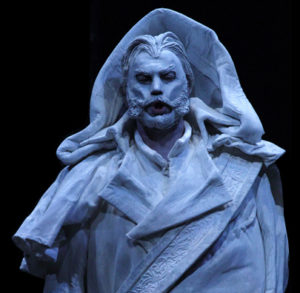 Extraversion: The Commendatore’s stage time is focused almost entirely on Don Giovanni. Fighting Giovanni in the opening scene, giving Giovanni ominous warnings and then accepting his dinner invitation in the graveyard, and finally demanding that Giovanni repent and then sending him to hell. No internal reflection, just action.
Extraversion: The Commendatore’s stage time is focused almost entirely on Don Giovanni. Fighting Giovanni in the opening scene, giving Giovanni ominous warnings and then accepting his dinner invitation in the graveyard, and finally demanding that Giovanni repent and then sending him to hell. No internal reflection, just action.
Sensing: Like this opera’s other Sensors, the Commendatore lives in the moment and always emphasizes the literal. When dying, he doesn’t think of the afterlife, or Anna’s future without him, or the punishment awaiting the Don for his crime, but focuses on the physical sensation of the wound. Nor are his dire warnings to the Don as a statue the same as Donna Elvira’s similar warnings. While Elvira’s signify her religious faith and highlight her Intuition, it’s not a matter of faith for the Commendatore: he’s come back from heaven, he literally knows that God and Satan exist, and everything he says is literally true.
Thinking: All the Commendatore’s actions are use-oriented. His daughter’s honor is threatened, so at the cost of his life he duels the culprit to defend her. Then he comes back to achieve one of two useful goals: either to convince Giovanni to repent and save him or else plunge him into hell and save the world from his sins. For a dead man, he makes himself remarkably useful.
Judging: Both as a living man and as a statue, the Commendatore is always decisive, stubborn and action-oriented. No observer or analyzer he. His moral stance, drive and resolve are as solid as the marble of his ultimate form.
ESTJs are known for being strong-willed, principled, dignified, tradition-oriented, natural leaders, and fierce defenders of their groups and their values. By the same token, they can be aggressive and overbearing, although in some contexts those traits can be useful. As I mentioned earlier, Donna Elvira spends much of the opera not only trying to be heaven’s agent of the Don’s punishment, but trying to act like an ESTJ, as INFPs often do under stress. Still, her true INFP nature always eventually comes forth. Not only is the Commendatore heaven’s true agent of the Don’s punishment, he’s also a true ESTJ, and he shows what a formidable, terrifying crusader a person of that type can be.
These character analyses are all based on the music and libretto alone: in performance, these characters are all open to a wide array of different interpretations. But no matter how differently different singers, conductors and stage directors might interpret the roles, I still think these basic personality types ring true… as does an imaginary Muppet production, though of course that’s pure silliness.
MBTI really is a useful tool for understanding fictional characters as well as real people.




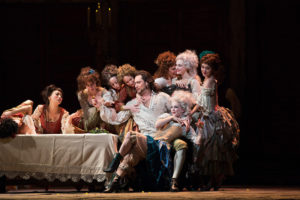
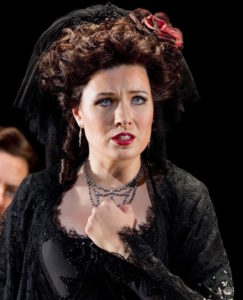
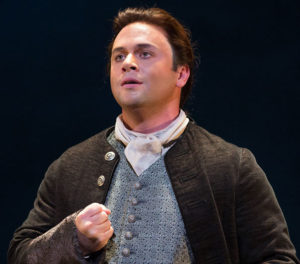
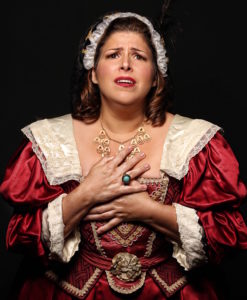
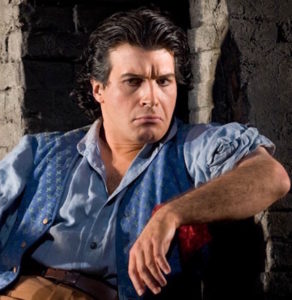
Доброго времени суток Разыгрыш денег №289 Забрать => https://forms.gle/74VD1UFGgNeEB8pz6?hs=b523ec99fcc2970c2be56edca42654a0&
February 22nd, 2023 at 00:27
qanvx3